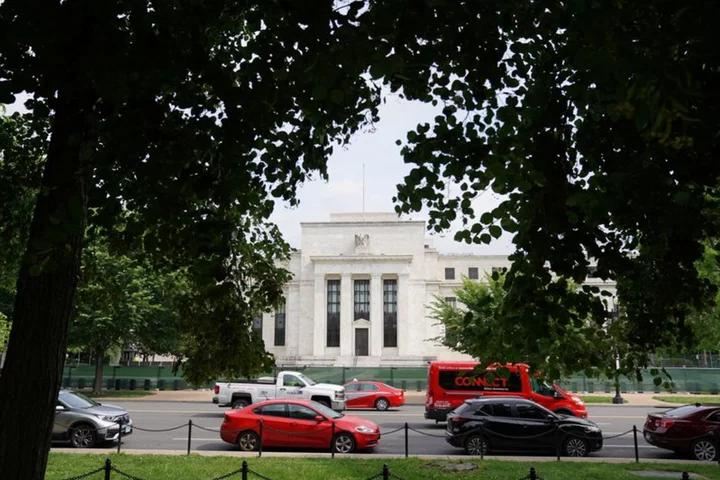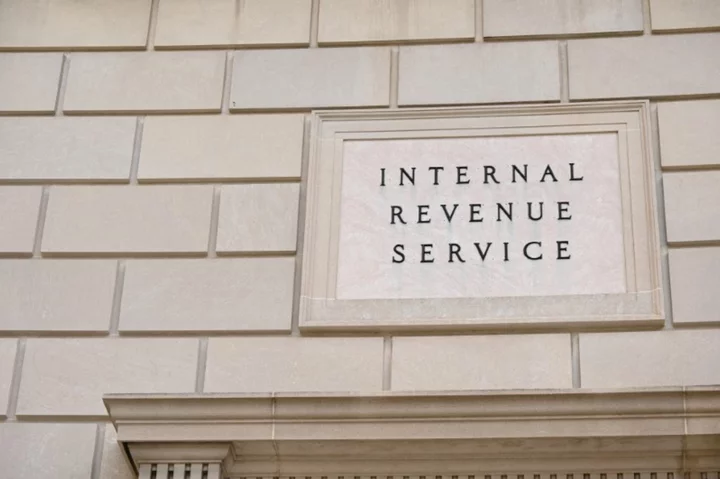(Refiles with change to headline)
By Pawel Florkiewicz, Gergely Szakacs and Marc Jones
WARSAW/BUDAPEST The central bank governors of Poland and Hungary are caught up in noisy disputes with opponents over their rate-setting policy, raising new hazards for investors willing to brave central Europe's bitterly polarised politics.
In Poland, governor Adam Glapinski stands accused of having tried to boost the economy with rate cuts to help his longtime allies in the Law and Justice (PiS) party secure a new term in last month's elections - unsuccessfully, as it turned out.
In Hungary, central bank governor Gyorgy Matolcsy is under pressure from Viktor Orban's government to cut rates further ahead of local and European Parliament elections next year.
The rows come against a backdrop of regional inflation that remains markedly higher than that in western Europe, driven up by structural factors like very tight labour markets but also repeated patterns of pre-election stimulus in recent years.
Regional CEE assets like others around the world are being buoyed by the perception in financial markets that the U.S. Federal Reserve has put the brake on monetary tightening, and so have been shielded from losses over the political noise so far.
The election triumph of Donald Tusk's pro-EU coalition has even sparked a rally in Polish assets. But investors and credit rating agencies are monitoring closely the pressure on local central bankers given that inflation is still way over target and unlikely to get back on track till late-2025.
"The overall monetary settings and the credibility of CEE central banks have been adequate ahead of the recent shocks," said Karen Vartapetov, Lead Analyst for Sovereign Ratings at S&P Global Ratings.
"This year and next will put that credibility to the test."
TANGIBLE BENEFITS
A 2021 World Bank survey found that political meddling in central bank policy led to sustained periods of high inflation in emerging market economies such as Turkey and Argentina.
Investor worries about central bank independence add to long-standing criticisms about the rule of law in Poland and Hungary, which have seen billions of euros of funds suspended by the EU due to its concerns about a backsliding of democratic standards. The governments have rejected the criticisms.
"Policy credibility is a negative rating sensitivity for Hungary and entrenched high inflation is incorporated in a negative sensitivity for Poland," said Paul Gamble, Head of Emerging Europe Sovereign Ratings at Fitch Ratings.
The incoming Polish government cites Glapinski's move to cut interest rates by a combined 100 bps ahead of the election but then keep them on hold after the vote as evidence he was tailoring monetary policy to the needs of his PiS allies. It is currently building a legal case that could see the governor being put before the State Tribunal.
Glapinski has repeatedly denied those allegations.
In response to a request to his office for comment, an NBP spokesman said officials had acted within legal mandates at all times and that moves to oust Glapinski could hit Polish assets.
"Attempts to bring the president of the NBP before the State Tribunal can be directly interpreted as an attack on the independence of the central bank," the spokesman said.
The State Tribunal consists of lawyers chosen by the lower house of parliament.
Local media says the body has handed down only two convictions since the collapse of communism and the procedure that could see Glapinski end up there could take months. If he is suspended, Deputy Governor Marta Kightley would take over.
CAPITULATION?
In Hungary, all eyes are on how Matolcsy - a former Orban ally who turned vocal critic of his economic policies - will deal with the government's demands that rates are reduced further from 11.5%, the highest in the EU.
Hungary's central bank has cut borrowing costs by 650 bps since May, refraining from a larger cut last week despite a somewhat better inflation outlook, with price growth seen easing to 7% by December from an eye-watering 25% in the first quarter.
"While there appear to be many solid reasons for accelerating the pace of rate cuts, a large proportion of foreign investors might see this as a capitulation to political pressure," ING economist Peter Virovacz said.
The bank said its base rate could fall into single digits in February, implying 75-bp cuts each over the next two months. The office of Matolcsy, whose term expires in March 2025, did not respond to questions for comment.
Polish five-year bonds carried a 282 bps spread over German Bunds on Friday, while Hungarian five-year bonds carried a 437 bps spread. How those premia evolve will depend partly on how politics in Poland and Hungary is perceived by investors to influence the central banks in the months to come.
"Everything else being equal, the less independent the central bank, the more real yield you need to have to be compensated for the risk," said Arif Joshi at Lazard Asset Management.
(Additional reporting by Karol Badohal in WARSAW; Writing by Gergely Szakacs; Editing by Mark John and Toby Chopra)









